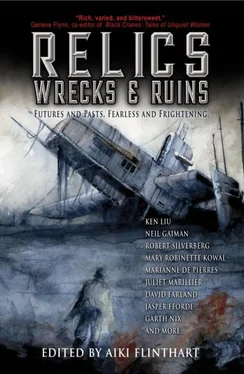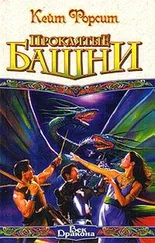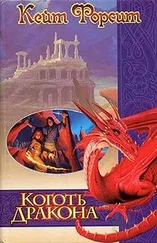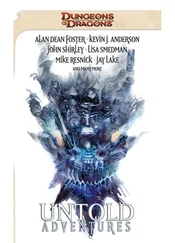For me, for now, the Carrath stones and the alien civilization that fashioned them are a paradox. They remind me that, as we explore and travel this vast, glorious, tragic universe, we are not alone.
And also that we are.

The Wreck of the Tartarus
By Lee Murray
October 2033
Strapped in her seat, Captain Kennedy R. Jones clutched the console as the submarine rolled on the Atlantic seabed. Seaman McNaught wasn’t so lucky; flung across the control room, his skull smashed against the interior wall. The young man’s face registered an instant of surprise before it slackened and collapsed. Then Kennedy lost sight of him, the submarine still toppling, rocks and debris from the volcano battering the Tartarus ’s graphene laminate exterior. The sub groaned, and Kennedy caught a whiff of burning rubber—electrical circuits—tasted blood, fear.
Orange warning lights flickered.
The hull shrieked, grinding, sliding on rock.
Behind Kennedy, someone screamed.
The vessel spun 180 degrees to starboard. Kennedy gasped. Her grip broke. She snatched at the arms of her chair as the sub twisted, tumbled, then tumbled again. The pride of the US Navy tossed like litter scattered carelessly on the wind.
Would it never stop? And would the Tartarus survive? Kennedy prayed the ship’s designers knew their business.
For a moment, she thought of Cole and their girls, Carlotta and Marie, at home. Right now, it was fall in Wisconsin. At Devil’s Lake State Park, the trees would be glorious, all gold and red and green; nature’s fireworks reflected and amplified on the water’s surface. Kennedy swallowed as the vessel jolted again. Why had she forsaken that majestic landscape for the darkest vaults of the ocean?
Her head whiplashed, a stab jolting her spine. Was the roll slowing? She clung on. The wait was excruciating, interminable.
Eventually, the sub ground to a stop. Upright, thank God. There were only a handful of her crew members in the control room, yet Kennedy could swear she heard a collective exhale. Then, just as they dared to breathe, there was a tearing, followed by an inexorable thrumming on the hull. Once more, they waited.
Minutes passed.
At last, everything fell quiet.
Kennedy unsnapped her seat belt, ignoring the nausea that welled in her throat, and took two steps to portside to check on McNaught. She touched her fingers to his neck, but he was dead—poor man. Hardly surprising, given that the back of his skull was dented cruelly inwards. Had he lived, his seafaring days would likely have been over; his right knee was shattered, the lower limb twisted unnaturally back on itself. Kennedy winced. He’d been spared that pain at least.
Fighting dizziness, she reached for a handhold, instead her fingers touched her executive officer, Cohen, slumped against the wall. Glassy eyes stared up at her. His mouth agape in a silent scream, his still-warm skin already leaching color. Kennedy’s heart clenched. The Tartarus assignment was their first together, so she hadn’t known him well, but he’d impressed her as competent and dependable. Solid. The son of a single mother, he wasn’t—hadn’t been—ruffled by a female commanding officer, rare even in these progressive times. She closed Cohen’s eyes with her fingertips.
Where was everyone? Kennedy’s pulse thrummed. Her scalp tightened. Was she the only one still alive? She stifled panic, an odd pang of loneliness already stealing over her. No, she mustn’t panic. There were fifty crew members on the Tartarus , and she was responsible for them all. She needed to get her head together, assess the damage, see to the wounded, and make a plan to get back on course.
Steadying herself against the wall, Kennedy got to her feet.
“Captain Jones.”
She started at the voice close behind. It was Chief Petty Officer Masterton. A quietly spoken man out of Ohio, he was a meat-and-potatoes sort. The type you’d expect to find behind the counter of a hardware store. A large bruise was blooming on the man’s cheekbone. His eyes drifted to the side.
“Executive Officer Cohen?” he asked, squinting.
“Deceased. McNaught, too.”
“Shit.” Masterton shook his head. “Begging your pardon, ma’am. What do you need me to do?”
A console burst into flame on the wall behind McNaught.
The fire siren wailed.
Fuck! Extinguisher. Where is it? It’d come adrift from its bracket. Rolled somewhere. Where? Kennedy whirled, caught the flash of red, lunged for it. God, that’s heavy. Pulling the pin as she clambered over McNaught, she aimed the nozzle at the base of the flame, pressed the trigger, and let the foam fly.
Speckles of foam landed on McNaught; Kennedy kept spraying. The fire sputtered; she didn’t stop until the foam slid in clumps down the wall.
The siren ceased its blaring.
“It’s okay; it’s out,” Masterton said.
Panting, Kennedy nodded. She lowered the extinguisher. Blew out hard. “Right, well I’d better assess the damage to the Tartarus ,” Kennedy said. “You check with the medic.”
Masterton lifted his chin. “Yes, ma’am.”
Several others were on their feet now, looking dazed and disoriented. Faces blanched when they spied the dead men.
“Masterton—before you do that, see about covering Cohen and McNaught.” Kennedy clicked the extinguisher back into its bracket. “Let’s give them a little privacy.”
“Ma’am.”
Kennedy took her chair at the console and checked the screens. Breathed in relief. At first glance, the Tartarus ’s double-hull structure appeared intact. With thousands of feet of water above the vessel, it was a comfort to know they weren’t in any immediate peril. Kennedy illuminated the outer hull, set the built-in eyes to scan, then checked the screens.
Her heart fluttered. Please, no.
There was no denying the truth: the ship’s stern, including the propellers and the outflow for the internal motion turbines, lay buried under an avalanche of rubble. Even now, rocks still clattered against the hull. The propellers would likely be impacted with rock. To make matters worse, the Tartarus had toppled into a trench and was now pinned on a ledge.
Kennedy switched screens, her heart in her throat. She gave a squeak of joy; the aft escape hatches were still clear. Her excitement was short lived. They were how many feet down? Ten thousand? More? Even if the distress buoy had managed to make it to the surface amidst the rubble of the eruption, the Tartarus could be a mile away from the volcano by now. Searching the ocean would be like looking for the proverbial needle in a haystack. And if the US Navy teams did manage to locate them, navigating the trench would be treacherous. Few vessels could withstand the pressures at the Tartarus ’s crush depth. What if they were beyond reach?
No. Stop this. There’s time. The graphene hull is intact. The organic liquid-flow batteries are fully charged. This isn’t the Kurst, and the US isn’t Russia. The Tartarus isn’t going to vanish without trace like the USS Cyclops or the ARA San Juan.
Not on my watch.
“Hurst?” she called. “Do we still have comms?”
The ensign scrambled to her feet after retrieving her headset from the floor. She checked her screens. “We’ve lost the cable for the two-way ELF, but if we send up the reserve array, then, yes, ma’am, we should have comms.”
Kennedy forced herself to breathe slowly, in and out, mimicking the ebb and flow of ripples on the beach. Her anxiety dampened. Everything would be fine. The sub was teched to the nines. They would extend the reserve array to reestablish the low frequency radio and she would let her superiors know what had happened. Rescue teams would be dispatched. Cohen and McNaught may be lost, but Kennedy and the rest of the crew could still be plucked from the jaws of hell and delivered to safety.
Читать дальше












